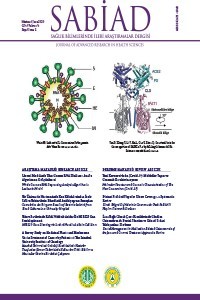
Sağlık Bilimlerinde İleri Araştırmalar Dergisi
Yazarlar: Abdullah UÇAR, İlhan İLKILIÇ
Konular:Eczacılık
DOI:10.26650/JARHS2019-616389
Anahtar Kelimeler:Big data,Healthcare,Ethics,Epistemology,Data sovereignty
Özet: The concept of “Big Data” covers all processes of storing and analyzing information that is beyond the capacity of traditional information systems. “Big” describes the magnitude of five major characteristics of data and not volume alone: Volume, Velocity, Variety, Veracity, Value. With the help of big data analysis, it is possible to identify the relationships between existing medical information and data, to determine the link between new variables and to make strong predictions about the future healthcare. In this context, new usage and application opportunities arise in various healthcare services ranging from public health to clinical sciences. In addition to new opportunities, big data analysis also presents new epistemological differences in the formation of medical knowledge, possibly engendering new controversies. Furthermore, the data generated by a large number of people need to be safely stored. The challenge of data security is set to alter the meaning and content of two well-established principles of medicine, “patient-privacy” and “physician-patient confidentiality”. In this context, we explain the historical development of big data, its basic features and important related concepts. The article further treats the current and potential uses of big data analysis in the field of health, and identifies and critically analyzes epistemological problems related to medical knowledge production. We also discuss the ethical problems that may arise. At the metalevel, we ask how the potential applications of big data analysis can impact our understanding of humanhood, human freedom and responsibility.
Dergi editörleri editör girişini kullanarak sisteme giriş yapabilirler. Editör girişi için tıklayınız.